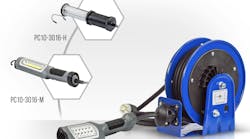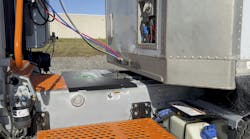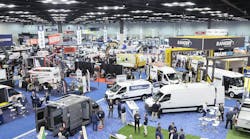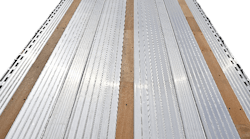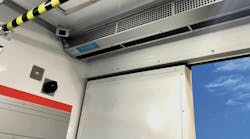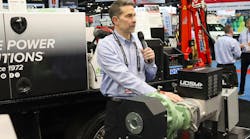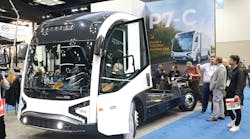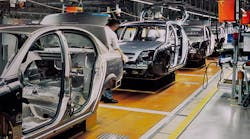Automakers, including Ford, Chrysler and General Motors, are uniting against President Trump’s proposed tariffs.
The new alliance, dubbed the Driving American Jobs Coalition, includes eight automotive associations representing United States manufacturers, parts suppliers, dealers, distributors, retailers and service providers who oppose potential new tariffs on imported automobiles and parts, saying they pose a “significant” threat to the US economy.
“The auto industry plays a critical role in growing our economy and tariffs will hurt American workers and consumers by raising the price of every vehicle built and sold in the US,” said John Bozzella, president and CEO of the Association of Global Automakers.
The coalition of industry associations, which the group calls “unprecedented,” includes the Association of Global Automakers, American Automotive Policy Council, the Auto Care Association, the American International Automobile Dealers Association, the Alliance of Automobile Manufacturers, the Motor & Equipment Manufacturers Association (MEMA), the National Automobile Dealers Association, and the Specialty Equipment Market Association.
US automakers Ford, Chrysler and GM employ about 250,000 people in the US.
The Association of Global Automakers also includes Hyundai, Honda, Toyota and Nissan, and the Auto Alliance includes Volvo, Volkswagen and Mitsubishi.
They plan to inform policymakers on the potentially negative effects of imposing new tariffs, the coalition said, including “massive” job losses and “significant” consumer price increases for most motor vehicles and parts, whether domestic or imported, with one CEO saying the price for autos of all brands could increase by $6,900.
“(That’s) a cost that would hit not only consumers but also the auto dealers and dealership employees who sell and service the vehicles,” said Cody Lusk, American International Automobile Dealers Association president and CEO. “The resulting loss in auto and auto parts sales, dealership employment, and facility investment would be devastating for the communities that rely on these small businesses to drive their economies.”
Higher auto tariffs also will result in less capital investments in innovation and less competition in promoting cutting-edge automotive technologies developed in the US, the coalition said.
Trump already imposed 25-percent tariffs on steel and aluminum imports through a law that allows the him to place tariffs on products for reasons of national security, which also would allow him to impose similar tariffs on cars and auto parts exported to the US.
“The importation of motor vehicle parts is not a risk to our national security,” said Ann Wilson, MEMA’s senior vice president of government affairs. “However, the imposition of tariffs is a risk to our economic security, jeopardizing supplier jobs and investments in the United States.
“To put it simply, if we lose the opportunity to develop and manufacture new technologies in the US, we will have little opportunity to recoup these losses for a decade.”
The coalition said it understands the Trump administrations’ desire to “level the playing field” and make better trade deals for American workers but does not agree with his approach.
“There is a much better way to accomplish our shared objectives,” said Christopher J. Kersting, president and CEO of the Specialty Equipment Market Association. “We look forward to working with the President and other policymakers.”

